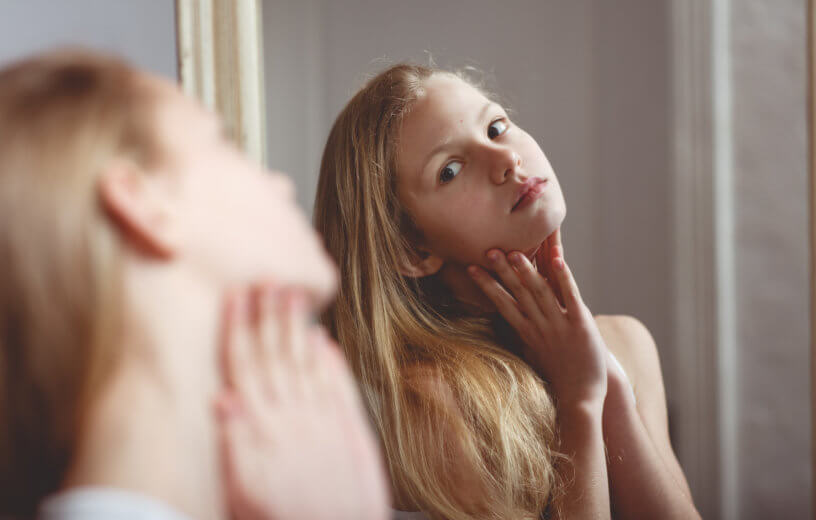MELBOURNE, Australia — It’s common for teenagers to deal with frustrations about their appearance as they go through puberty, but a new study out of Australia has found that even pre-pubescent adolescents as young as eight are vulnerable to developing a poor body image.
According to researchers at the Murdoch Children’s Research Institute (MCRI) and the University of Melbourne, children around the age of eight or nine can suffer from poor body image as sex hormones rise with the beginning stages of puberty. It seems that the level of hormones present in an adolescent’s body is directly linked to their level of body dissatisfaction.
After analyzing data from over 1,100 boys and girls aged 8-9, researchers say it is important for schools and parents to help children maintain a positive body image around this age. It’s typical for schools to implement health classes dealing with puberty around the age of 11-13, but this study suggests it may be a good idea to get started earlier than that.
Each child’s body dissatisfaction was measured using a tool called the Kids’ Eating Disorder scale (KEDS). Each participant was presented with eight illustrated silhouettes of children displaying a variety of body sizes, with different sets available for both genders.
The children were asked to select which silhouette resembled them the most at that moment, and then which silhouette they would like to resemble in the future. Each child’s hormone levels were also measured using saliva samples.
The data indicates that girls tend to be more dissatisfied with their bodies overall than boys. However, boys with higher hormone levels also felt unhappy about their physical shape.
“What we have learnt is that pre-pubescent children, as young as eight and nine, are vulnerable to poor body image and the dissatisfaction does appear to be linked to hormone levels associated with the onset of puberty,” lead study author Dr. Elizabeth Hughes explains in a release. “Basically the higher the level of hormones, the more unhappy the children were with their body size; however children with heightened levels of hormones also tend to be taller and heavier than their peers, and this could be the cause of their poor body image.”
According to Dr. Hughes, it is important to remind children from a young age that their self-worth isn’t solely determined by their bodies or physical appearance.
“It may be that children who are taller, heavier and more physically mature, feel more conspicuous amongst their peers,” she says. “There may be a need for community and school programs that help young people learn about what underpins good self-esteem, because self-esteem is not solely invested in physical appearance.”
The study is published in the Journal of Adolescent Health.
